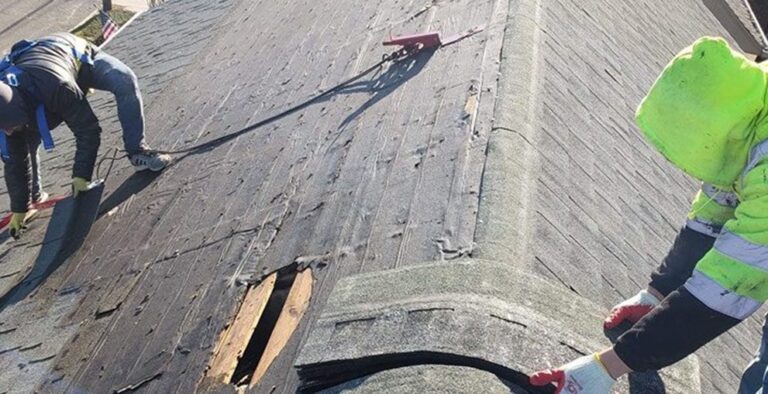The Evolving Role and Impact of Private Security Services
In today’s complex and often unpredictable world, Private Security Services have become an indispensable component of ensuring safety, order, and confidence for individuals, communities, institutions, and businesses alike. From guarding residential complexes to protecting high-profile executives, managing large-scale events, or securing critical infrastructure, private security firms bridge the gap between public policing and bespoke, situationally aware protection. This article delves into what modern private security services encompass, why they are increasingly in demand, how they operate, and what one should look for when selecting a quality provider.
What Are Private Security Services?
At its core, private security services refer to the professional provision of protection, surveillance, deterrence, and response by non-governmental organizations or agencies. Unlike public law enforcement, these services are contracted and tailored to a client’s needs—whether it’s for a home, business, event, or individual.
These services may include:
-
Uniformed guards (for access control, patrolling, reception)
-
Armed security personnel (for high-risk or sensitive sites)
-
Executive Protection / Personal Security Officers (PSOs)
-
Event crowd management and bouncer services
-
Mobile patrols and rapid response units
-
Risk assessment, security consulting, and surveillance integration
Modern private security teams don’t just act as passive observers; increasingly, they integrate technology, real-time reporting, and professional oversight to offer proactive protection.
Why Demand Is Rising
Several converging trends have driven up the use and importance of private security services:
-
Urbanization & Asset Concentration
As cities expand and commercial/residential complexes concentrate more assets and people in small areas, the potential risk per square meter grows. Businesses, housing societies, malls, and campuses need dedicated protection beyond what municipal policing can reliably provide. -
Specialized Threats
Modern threats—such as cyber-physical intrusion, targeted attacks, organized theft, or brand reputation risks—require customized security solutions. Generic public policing often lacks domain-specific sensitivity (e.g., VIP security, data centre protection, or event crowd control). -
Expectations of Safety & Trust
Stakeholders—tenants, employees, visitors, clients—expect visible, competent security. A lapse in security can erode trust, damage reputation, and incur heavy losses. -
Efficiency & Liability Management
Engaging a professional security service shifts the burden of recruitment, training, licensing, oversight, and insurance to the provider. For organizations, this can be more efficient and legally safer than creating in-house security wings (especially in regions where regulatory compliance is demanding). -
Technological Integration
Private security firms are increasingly combining human guarding with CCTV analytics, remote monitoring, GPS-enabled reporting, mobile apps for tracking guard check-ins, and automated alerts—offering a value proposition beyond mere muscle.
Core Components and Best Practices
To deliver effective protection, private security services must be built on a foundation of training, compliance, responsiveness, and client alignment. Below are key ingredients:
1. Licensing & Legal Compliance
A credible security agency adheres to relevant regulations. In many jurisdictions, private security firms must be licensed, and personnel must be registered or certified. This ensures oversight, standardization, and accountability.
2. Rigorous Recruitment & Vetting
Guards and officers should undergo background checks, identity verification, character screening, and reference checks. A strong selection process weeds out individuals prone to misconduct or negligence.
3. Comprehensive Training
Training must go beyond physical drills. The curriculum should cover:
-
Legal frameworks (rights, limitations, emergencies)
-
Communication & customer service
-
Crisis response, fire safety, first aid
-
Surveillance, reporting, and use of technology
-
Soft skills: conflict de-escalation, cultural sensitivity
4. Structured Oversight & Quality Control
Supervision is critical. Field officers or site supervisors must continuously monitor guard performance, review incident logs, and engage in regular client feedback loops. Real-time oversight, audits, and spot checks reinforce discipline.
5. Custom Security Planning & Risk Assessment
No two sites or events are identical. A competent provider begins with:
-
On-site survey and threat mapping
-
Understanding client-specific vulnerabilities (e.g. entrances, high-value items, VIP traffic)
-
Designing shift rosters, guard placements, emergency protocols
-
Contingency planning (fire, medical, intrusion, evacuation)
6. Incident Reporting & Documentation
Every deployment should be accompanied by daily logs, incident reports, and analytics. These records not only help improve operations but also provide legal and operational clarity.
7. Rapid Deployment Capability
In many cases, security challenges or client needs can emerge suddenly. A strong firm can mobilize trained personnel within tight timelines (24–72 hours), backed by logistical readiness.
8. Integration of Technology
Modern agencies increasingly use:
-
GPS / geofencing / guard check-in systems
-
Mobile applications to log rounds, incidents, and alerts
-
CCTV and remote monitoring
-
Central control rooms and alarm linkages
This fusion of human presence and tech ensures better coverage and faster response.
Use Cases & Industry Applications
Private security services have become embedded across many sectors. A few illustrative use cases:
-
Residential Complexes & Gated Communities
Guards manage access, night patrols, visitor logs, and perimeter checks, helping residents feel secure in everyday life. -
Corporate & IT Parks
With sensitive infrastructure, high footfall, and data assets, these require layered security—lobbies, parking lots, internal patrols, and disaster readiness. -
Retail, Malls & Showrooms
Guarding entrances, theft prevention, crowd control during sales, and emergency readiness. -
Events & Exhibitions
Staffed with crowd management, entry control, queue management, bouncers, and VIP protection. -
Executive / VIP Protection
For high-net-worth individuals, political figures, or celebrities, discreet personal protection (close protection) ensures their safety in daily movements or events. -
Institutions, Educational / Health Facilities
Campus surveillance, emergency response, visitor screening, and ensuring general order. -
Hospitality & Tourism
Hotels, resorts, cultural events or festivals benefit from local guards trained in crowd flow, guest assistance, and security. -
Critical Infrastructure & Sensitive Sites
Data centers, power substations, chemical plants, or government sites demand armed security, strict protocols, and high-level vetting.
A well-deployed private security team is often the first responder before law enforcement arrives, offering continuity and proximity.
Challenges and Ethical Considerations
While private security fills vital gaps, it comes with responsibilities and cautions:
-
Use of Force & Liability
Security personnel must act within legal boundaries. Excessive force or misuse can lead to legal liabilities for both the guard and the contracting organization. -
Overselling Capability
Clients sometimes expect “100% guarantee.” But security is about risk reduction, not absolute immunity. Honest communication about residual risk is essential. -
Accountability & Oversight
Without strong supervision and reporting, lapses, collusion, or misconduct can occur. Transparent systems and audits are non-negotiable. -
Worker Treatment & Rights
Guards must be fairly compensated, properly trained, insured, and managed. Poor labor practices lead to turnover, low morale, and poor service. -
Coordination with Public Enforcement
Cooperation with local police, emergency services, and regulatory agencies must be smooth. Security teams should know when to hand over incidents or escalate. -
Privacy & Surveillance Ethics
Deploying cameras, monitoring, and checks raises privacy questions. Agencies must balance safety and respect for individual rights.
Selecting the Right Private Security Provider: Key Criteria
When choosing a private security services provider, here are critical considerations to evaluate:
-
Licensing & Compliance Record
The agency should hold required regional licenses and have a clean compliance history. -
Training Standards & Curriculum
Ask about their training modules, frequency of refreshers, and specialization. -
Supervisory Structure & Oversight
How many guards does one supervisor manage? What are mechanisms for audit and feedback? -
Technological Capability
Does the agency utilize GPS tracking, mobile reporting, central monitoring, alarm linkages? -
Flexibility & Customization
Can they scale, adjust shift patterns, respond to special events, or customize services? -
Response Time & Deployment Readiness
The provider should be able to mobilize resources promptly when needed. -
Reputation, References & Past Experience
Seek client testimonials, case studies, and see performance in similar environments. -
Transparency & Reporting
Clear incident logs, daily reports, communication lines, and escalation matrices. -
Cost vs Value
While cost is a factor, the emphasis should be on value: risk reduction, peace of mind, deterrence. The cheapest option may cut corners; the most expensive may oversell. The ideal lies in balance. -
Insurance & Indemnity
The agency should carry liability coverage for incidents or damage resulting from guard action or negligence.
Conclusion
Private Security Services have evolved far beyond the image of a guard standing stoically at a gate. Today’s providers are security strategists, technology integrators, crisis responders, and client partners. As risks grow in scale, sophistication, and variety, relying solely on public law enforcement is insufficient. A well-chosen security firm can not only protect assets, people, and reputation but also contribute to operational efficiency, trust, and peace of mind.
For any organization or individual seeking to safeguard their environment, the decision to bring in private security is not just about deterrence—it’s about building a resilient security posture tuned to the specific risks, context, and mission of each deployment.







